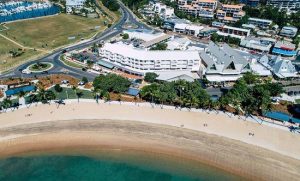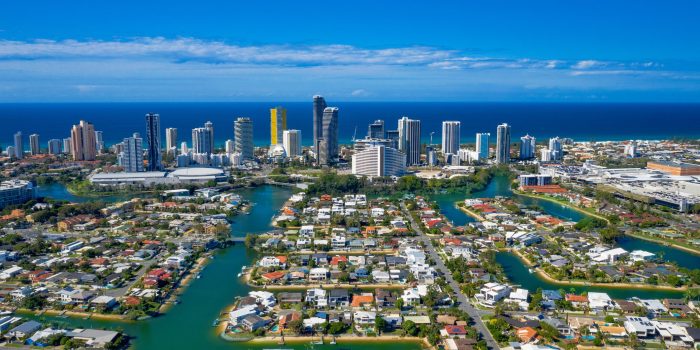The suitor of a prized Whitsunday Coast tourism asset has resorted to a Heads of Agreement in an effort to compel the owner to complete an intricate sale notwithstanding the absence of a signed formal contract.
Sentinel – a property syndication investment group – negotiated detailed terms for the $41.5 mil buy of the iconic Airlie Beach Hotel in October 2020.

As the matter advanced, Sentinel requested amendments that ABH considered to be “uncommercial” and not consistent with what the parties had agreed.
On that ground and because it had been unable to secure the consent of the two mortgagees to the grant of the option in Sentinel’s favour, it notified its termination of the deal the following month.
Sentinel took umbrage and advised that it treated the purported termination as a repudiation. It caveated the title.
The first question to be decided by Justice Tom Bradley when the dispute came before him in the Supreme Court of Queensland was whether in such circumstances the HOA was capable of being interpreted as binding.
He rejected ABH’s contention that it was simply “an agreement to agree”.
Even though the document recorded only the fundamental terms of a “very substantial transaction” and the parties agreed formal documents would follow, it was – he observed – sufficiently comprehensive to give effect to the call option, and if exercised, a contract of sale with agreed warranties.
The HOA was held to be enforceable as a summary of every intricate agreed detail except for the proposed leaseback of the premises to allow the seller (or its related company) to conduct the hotel business on the premises.
A pro forma lease had been separately supplied but it was not annexed to or incorporated by reference into, the HOA.
That omission proved fatal to Sentinel’s case as the missing lease was a fundamental element of the transaction that the otherwise enforceable HOA had contemplated.
“I reject SPG’s submission that the proforma lease was incorporated in the agreement,” his honour ruled. The proforma lease was in any event a mere “starting point for negotiating a lease agreement”.
That was enough for ABH to defeat Sentinel’s lurch at the tourism jewel.
Justice Bradley went on however to deal with the further contention that ABH had only failed to satisfy the condition precedent – ie its mortgagees’ consents – because the steps it had taken to secure same had been insufficient.
The first mortgagee was CBA whose cross-collateralised loan to the seller also related to the hotel business as well as another freehold hotel at Cannonvale owned by a related company.
And the former owner of the Airlie Beach pub – who had the second mortgage securing the vendor finance it had extended to allow ABH’s acquisition – could not be assured of payment of its full debt from the proceeds of ABH’s sale.
Thus both mortgagees saw the grant of the option as potentially detrimental to their interests and refused to grant consent.
Sentinel argued though that ABH was impliedly obliged to exhaust “all possibilities that might have led to consent being given”.
Justice Bradley – following a five-day trial – rejected that contention and concluded each party was only required to take such steps “as were objectively required and reasonable”.
He agreed that it was likely that Sentinel’s buy price would be insufficient to meet CBA ‘s debt and that of the second mortgagee as well as transaction costs.
His Honour ordered – in a 44-page judgment – that ABH’s termination of the transaction was valid and dismissed Sentinel’s claim. He ordered its caveat to be removed.
Further orders in relation to costs are yet to be made but it is anticipated that Sentinel will be ordered to pay the hotelier’s legal costs.
Sentinel Property Group Pty Ltd v ABH Hotel Pty Ltd & Anor [2022] QSC 165 Bradley J, 26 August 2022





